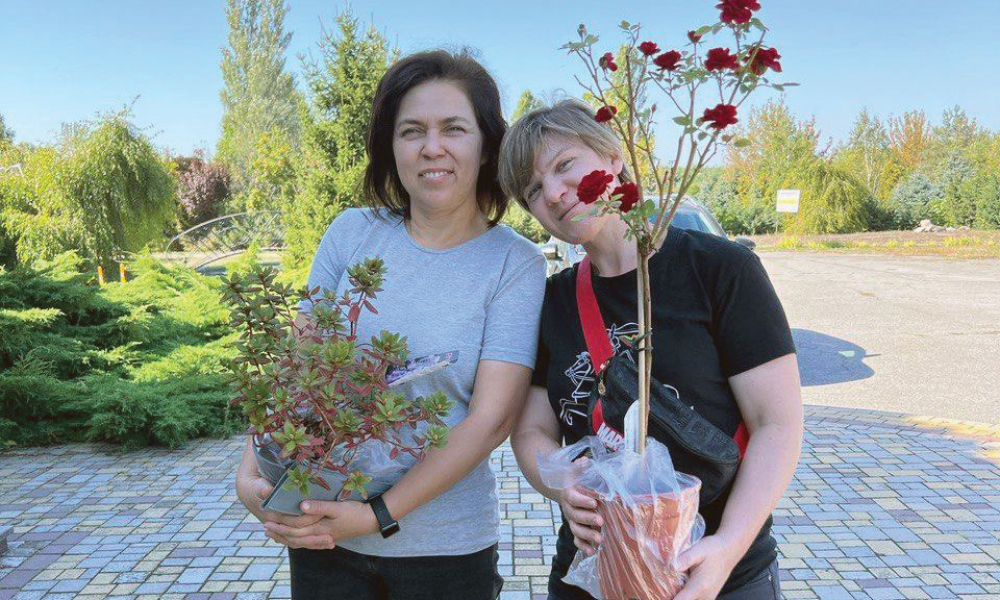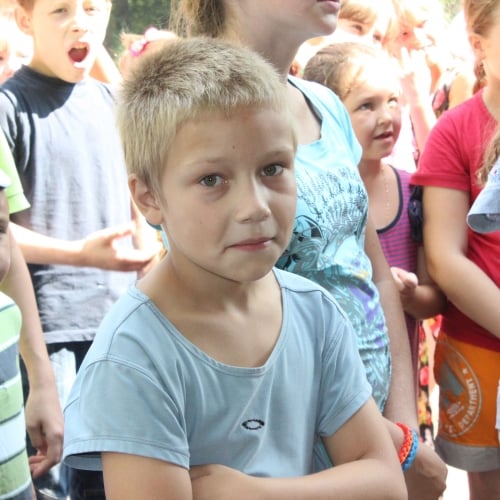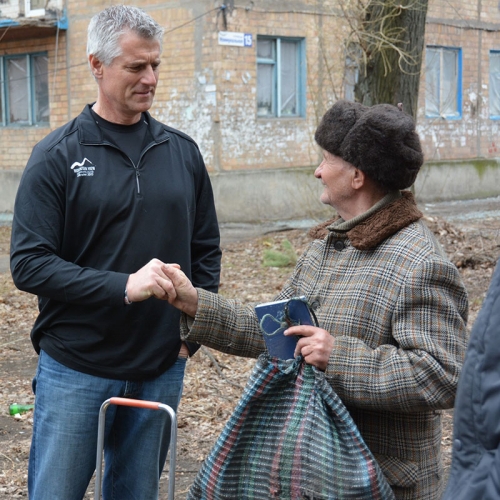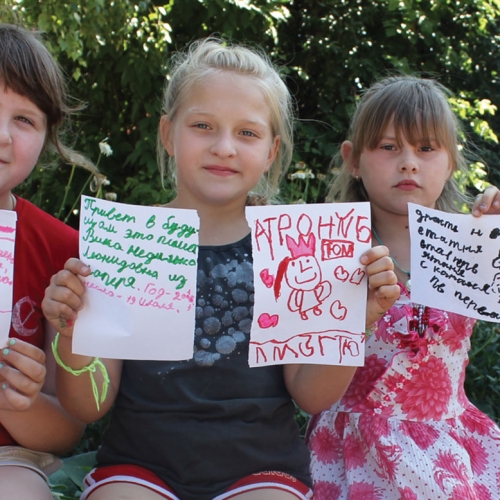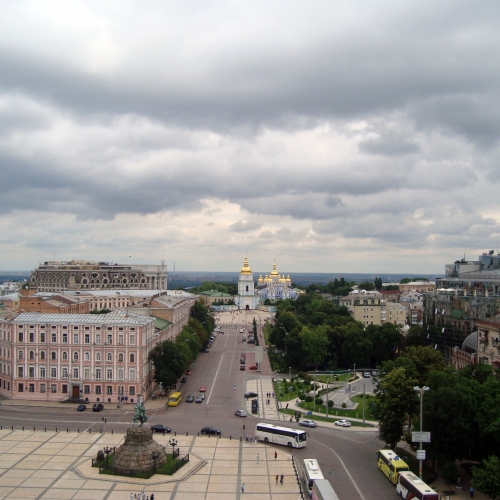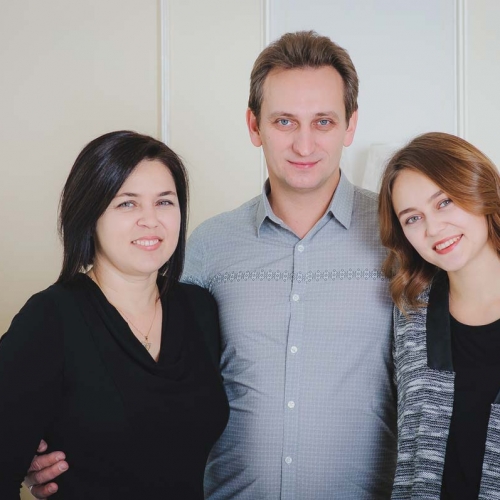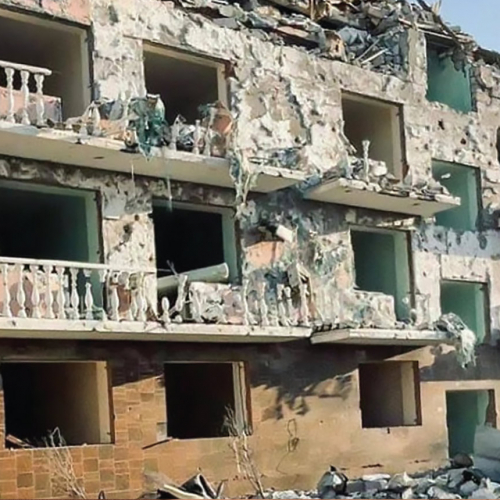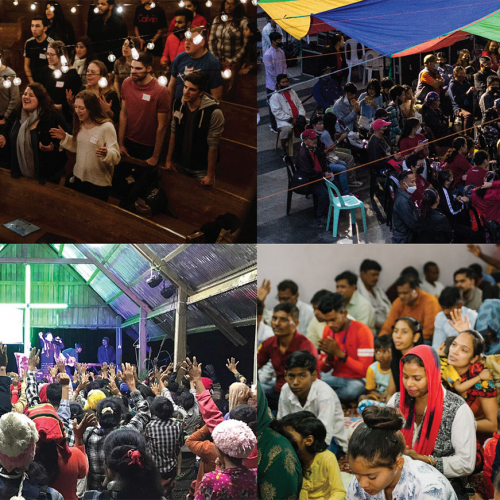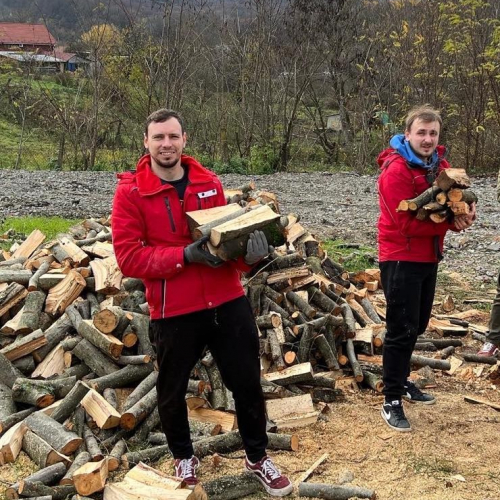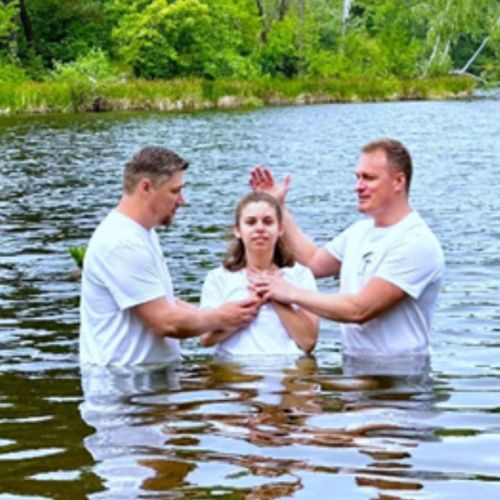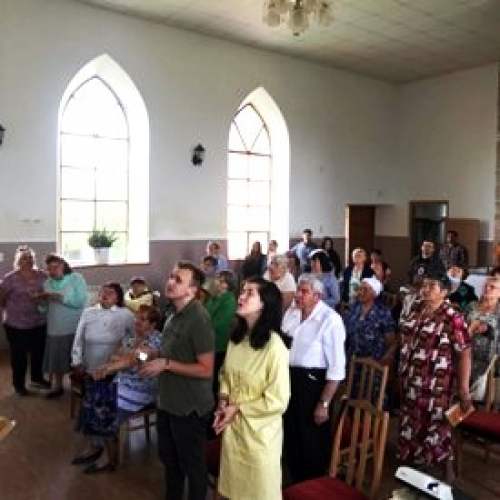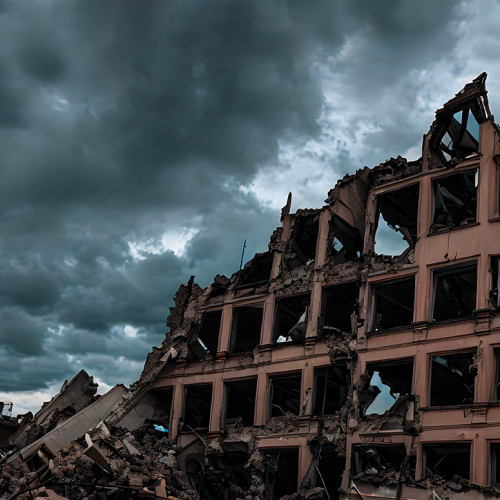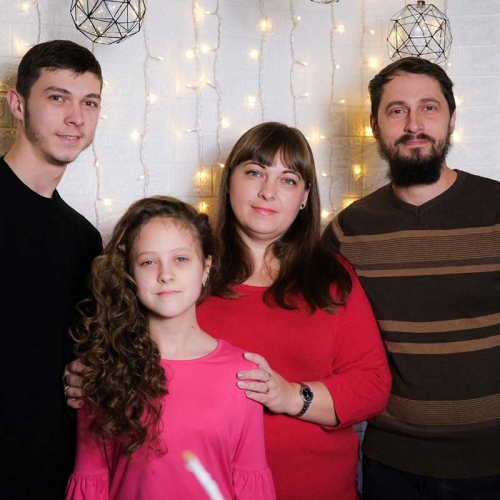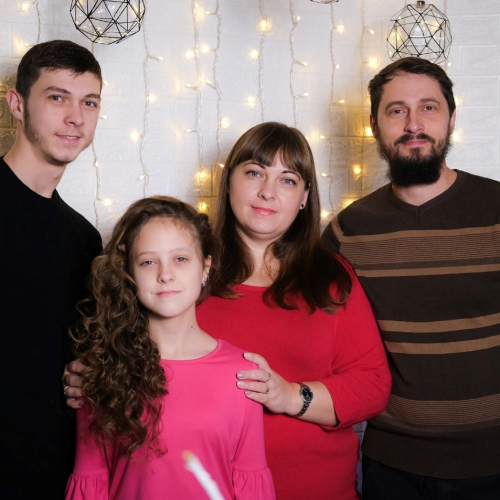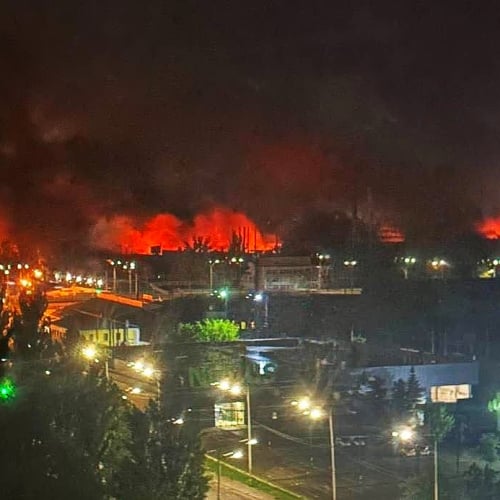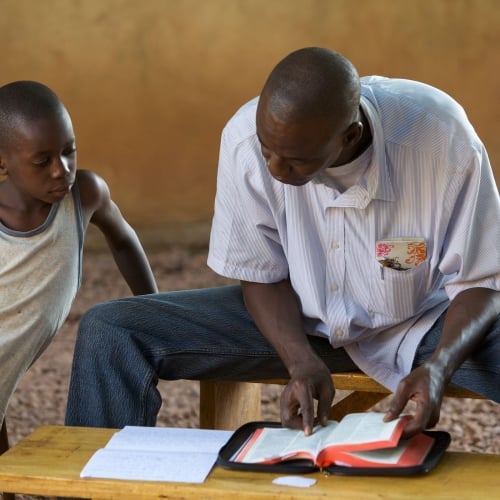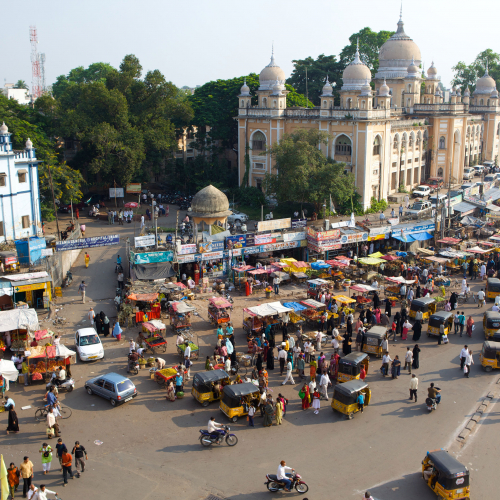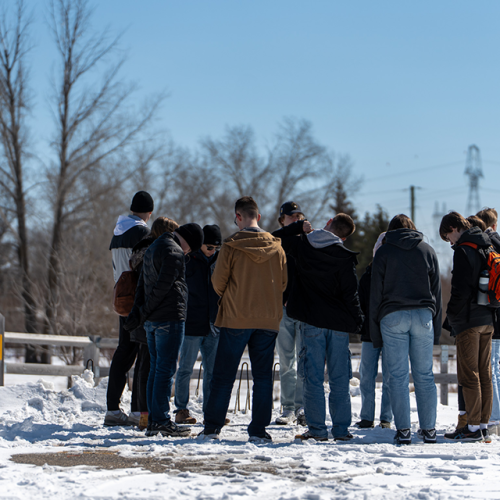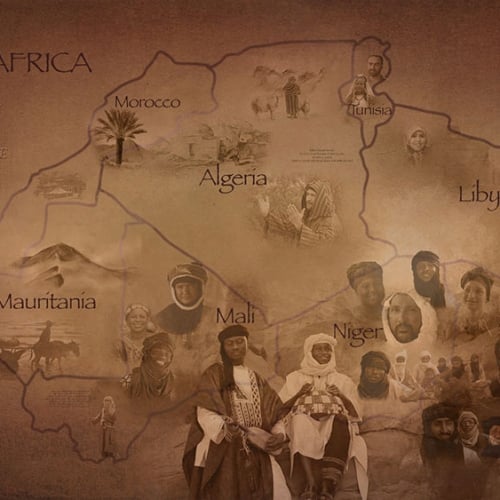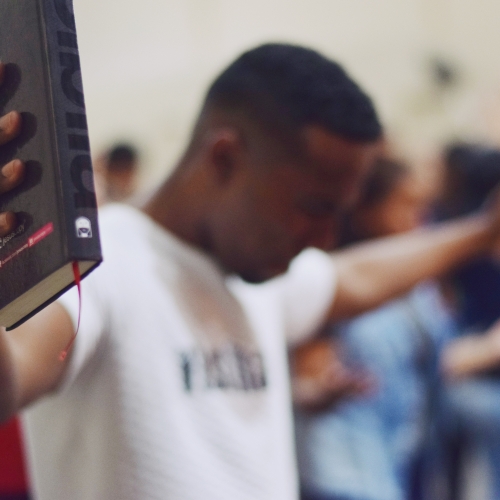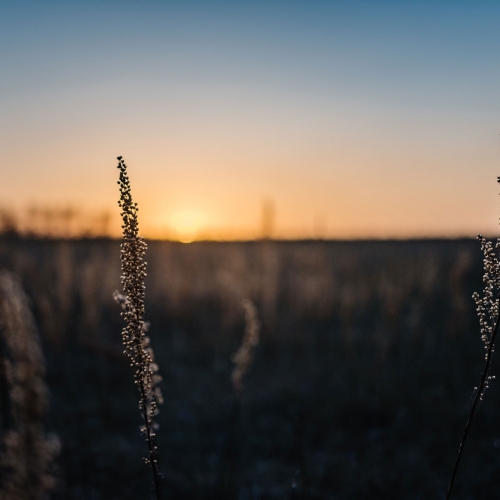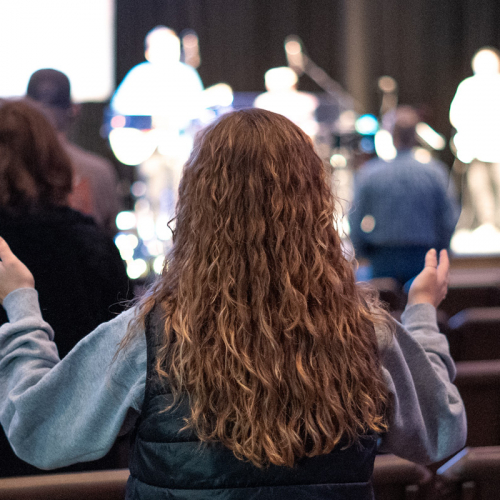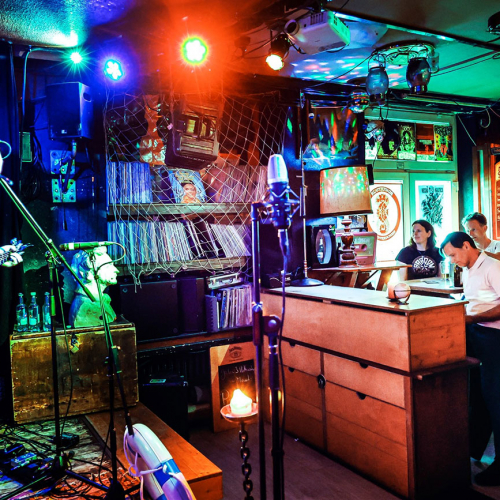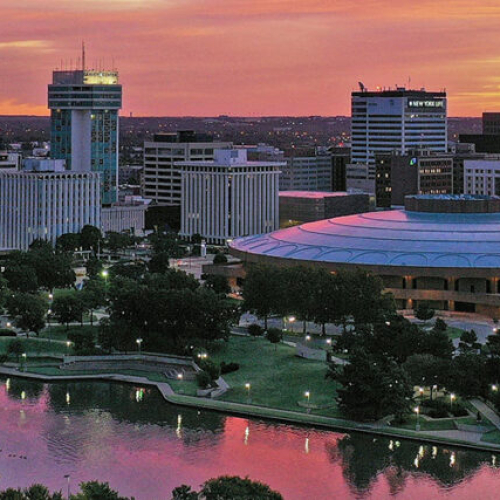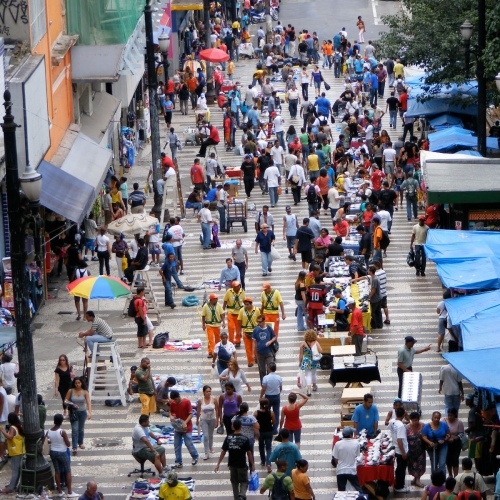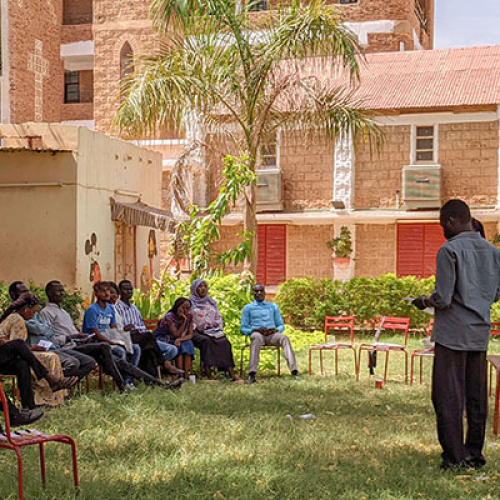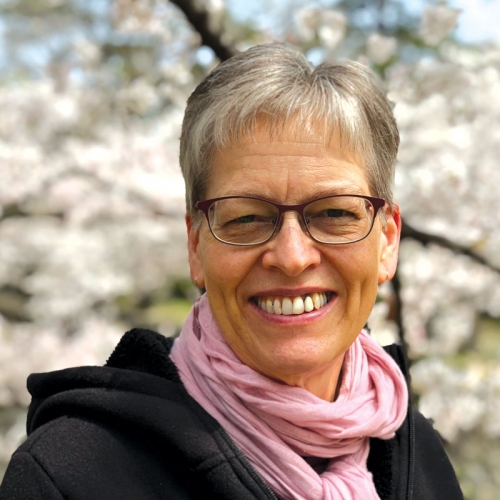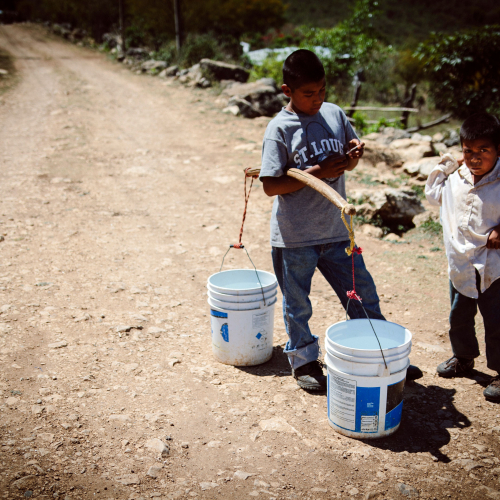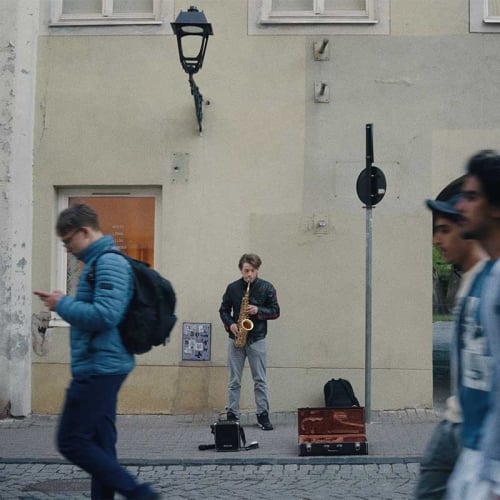As a plant, it was a pretty lame specimen. Limp, anemic leaves shuddered and dropped off as soon as she touched them, littering the bone-dry soil at the bottom of a cheap plastic pot. No wonder it was on sale.
The clerk looked puzzled, ringing up the purchase. “You collect dead plants?” she asked.
“Not exactly,” Anya replied. “I save them.”
Gardening is more than a hobby for Anya Oliferovski. Like the other therapies she and her husband Maxym offer to refugees at New Hope Center in Zaporizhzhia —art therapy, group therapy, professional counseling, family retreats in the Carpathian Mountains—gardening has become an intentional affirmation of life for those on the verge of giving up.
“We offer them a place to belong, a place to meet Jesus, a place to be loved,” Maxym says. “We offer them family.”
For victims of war, the Mennonite Brethren value of family provides a support which is relational, spiritual, and utterly practical. Even while physical needs are being met, Maxym and Anya are also constantly challenged to find new and creative ways to bring healing to the damaged soul.
For victims of war, the Mennonite Brethren offer a family that is relational, spiritual, and utterly practical.
“Children and adults are all experiencing the effects of three years of stress, anxiety and depression,” Maxym shares. “I do not need my degree in psychology to see this! Three years of sleep deprivation—from missile attacks timed to occur in the middle of the night—have left us fragile.”
Much like the leaves of the unwanted plants that Anya insists upon rescuing.
When drone and missile attacks made it unsafe for them to stay at their apartment in the city, Maxym and his family decided to move to a small cottage they owned on the outskirts of Zaporizhzhia. The relative safety helped to settle their frayed nerves, and when Anya began to deliberately cultivate a garden, her husband was at first bemused.
“It was a mess, a lot of hard work,” he remembers. “The land was full of old trees, old plants, old weeds. Cleaning it up took a lot of time!”
Then came a day when, instead of pulling up weeds, Anya began to plant small trees, bushes and flowers—lots and lots of flowers. Soon she was frequenting stores to buy cast-off plants, and then friends began to bring her their withered herbs and shrubs to replant. As Maxym watched his wife, he realized that this was an apt metaphor for what New Hope and the churches in Ukraine were trying to do for their countrymen.
“We take in withered families, and help bring them back to life.”
The years spent in developing programs for youth and families in crisis barely prepared Maxym and Anya for the influx of displaced and traumatized people that began flooding into their facility when Russia invaded their country three years ago. Since then, staff have devoted themselves to sheltering, healing and relocating the displaced. Partnering with Multiply, MCC and MB churches in Germany and Lithuania has enabled them to provide short-term shelter for more than 1,000 displaced and needy people, and emergency supply kits for countless more.
Space and resources at New Hope are limited, but everyone that comes is welcomed with the warmth and undeterred, defiant optimism that is characteristic of Ukrainian people.
“It is like Anya’s garden,” Maxym reflects. “Each time she comes home with another dying plant or shrub or fruit tree, I say, ‘Anya! Another one? The garden is already crowded!’ And she tells me, ‘Oh, just one more. I’ll find room.’”
Unsurprisingly, people who experience this sense of belonging are reluctant to leave. “We noticed this even before the war,” Maxym remembers. “That is why we began a Bible study group. The next thing we knew, we had planted a church!” Their plant is named, aptly, God’s Family Church. It is a place where broken families can heal.
One such family is Julya and her son Vladislav. They both suffered from the trauma of being forced to flee their home town to seek shelter in Zaporizhzhia. Displacement leaves a mark that isolates the refugee, making it difficult to enter into community with others.
“My child and I just stayed in the shelter,” Julya remembers. “We didn’t go out anywhere, we were too afraid. Vladislav was so lonely, struggling to find a common language with others. For a child, it is so difficult to move from their own home, from the familiar environment they were used to. He had to learn everything new.”
At New Hope Center, their hearts were tended to, much as Anya lovingly tends to the wounded plants in her garden. “We were at the bottom; everything was chaos,” Julya recalls, “and they helped us to sort through our pain and put everything on the shelves of our minds, where we could cope with it all. My son came alive again!”
Today, Maxym and Anya are working to finish renovating a second small cottage on their land to serve as an accessible retreat center, where intensive ministry and healing can take place for those struggling with trauma.
“We call it the Wings Renewal Center,” Anya says. “Already we use it for small gatherings and church picnics and baptisms. One day, the war will be over. There will be many veterans and widows and orphans; people will need a place like this.”
Glancing out the window, Maxym grew pensive. “Maybe we are crazy,” he says. “Who starts a garden during war? Some of these seedlings will take five or ten years before they mature. Will we even live to see it?”
Then he shrugs, pragmatic once again. “Maybe so, maybe not,” he says. “In the meantime, we will plant one more tree.”
The Lord will guide you always; he will satisfy your needs in a sun-scorched land and will strengthen your frame. You will be like a well-watered garden, like a spring whose waters never fail.
~ Isaiah 58:11
GIVE
Help Ukrainian children and families recover from the trauma of war, build healing friendships, and envision a future with Jesus at the center. multiply.net/new-hope-center

